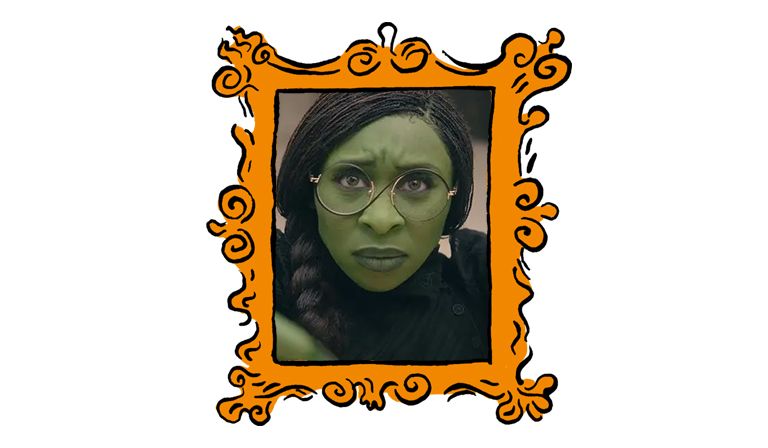They say the devil has the best tunes, but it’s the Wicked Witch of the West who has conquered the box office. Jon M Chu’s Broadway musical adaptation Wicked, which has been two decades in the making, opened last weekend to an impressive $164 million worldwide—the largest sum ever grossed by a film of this kind and dwarfing the openings of the likes of 2014’s Into The Woods ($32 million in the US), 2012’s Les Misérables ($27.3 million) and this year’s Mean Girls ($28.5 million).
The film’s success destroys several widely held shibboleths, such as that female-led pictures having a limited appeal to mass audiences (it opened opposite Gladiator II in America and made double the money) and that musicals require A-list stars to succeed (Wicked’s biggest name is Ariana Grande, better known for her musical career than her acting, and its true star is Cynthia Erivo, an estimable British actor who has nevertheless yet to, in Hollywood parlance, “open” a picture).
If there is any justice, Erivo will now ascend to the A-list, where she should have been for years. Her performance as the eponymous witch Elphaba is as nuanced and heartfelt as anything that she has done in considerably smaller projects, and Erivo’s ability to convey subtle emotion—often in mid-air amidst a blitzkrieg of special effects and Nathan Crowley’s vast, near-overwhelming production design—is something remarkable. Unfortunately, it is unlikely that Erivo, Chu or Grande will be praised for the film’s success. Instead, Hollywood will pat itself on the collective back for having backed a major musical that has been a commercial success, rather than an egregious failure.
Musicals have been part of the film industry’s ecosystem for almost as long as the film industry has existed. 1927’s The Jazz Singer, with Al Jolson, was, famously, the first talking picture—and, in the decades since, many other musicals have been both critically and commercially triumphant. The likes of West Side Story (1961), The Sound of Music (1965) and Oliver! (1968) were all adapted from popular stage musicals and went on to achieve considerable renown in cinema, with all three winning Best Picture at the Oscars. Yet, after 1970, something shifted. Only one musical has won Best Film at the Academy Awards in the last half-century, in the form of 2002’s Chicago, and that owed its triumph as much to the energetic (read: bullying) promotional efforts of its now-disgraced executive producer Harvey Weinstein as it does to the qualities of Bill Condon’s picture.
Wicked has proved that the Hollywood musical is still a commercial concern, but it comes after a series of flops and disappointments. Tom Hooper’s Cats is the gold standard in this regard, being released in late 2019 to widespread disbelief. After its initial failure, it is now on the second of its nine lives as a hysterically received kitsch midnight movie, with tanked-up audiences throwing popcorn at the screen. Much as Hooper—who has yet to make another feature film—may detest the reception of his picture, at least it’s still being talked about. Which is more than can be said for the likes of Dear Evan Hansen (2021), which was ridiculed for casting the 27 year-old Ben Platt as the 17-year old Hansen and duly flopped, and Chu’s previous musical, the Lin-Manuel Miranda adaptation In The Heights (2021), which failed to make back its generous $55 million budget on release.
Nor are the A-list immune. Such eminent filmmakers as Francis Ford Coppola and Martin Scorsese have tried and failed to bring Hollywood musicals to wide audiences, and when Steven Spielberg attempted his own version of West Side Story in 2021, he was similarly unsuccessful. Although it was widely praised and won an Oscar for its star Ariana DeBose, it only grossed a quarter of the amount that it would have needed to break even, let alone turn a profit. There are far easier ways to make money in Hollywood than expensive, time-consuming musicals—low-budget horror pictures, for instance—and studios are seldom known for their desire to lose money on artistic ambition if they can make a quick buck on something unchallenging.
The last original (that is, non-stage-originated) musical to be a real success was 2016’s La La Land, which was a huge hit and won five Oscars. Yet it did not lead to a surge in original musicals, although last year’s Wonka, which featured a series of droll, Neil Hannon-penned numbers, was a conspicuous success, even if that picture owed its triumph to both brand recognition and the star power of Timothée Chalamet.
Wicked, and next year’s sequel, could well go on to earn a billion dollars at the box office—and will make a nervous industry feel relieved. But will it give an increasingly risk-averse genre a true shot in the arm? To paraphrase Wicked’s most famous number, if it does, it would be a case of defying gravity and history alike.
‘Wicked’ and the state of the Hollywood musical
Jon M Chu’s film is currently defying gravity—and not just in terms of box office receipts
November 28, 2024









